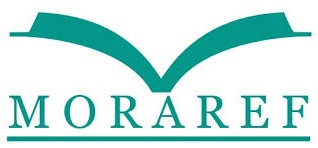Anggraini, R. B., & Prasillia, A. (2021). Hubungan self care terhadap kualitas hidup pasien diabetes mellitus: study literature. Nursing Science Journal (NSJ), 2(2), 63-74.
Basri, M., Rahmatiah, S., Andayani, D. S., Baharuddin, K., & Dilla, R. (2021). Motivasi dan Efikasi Diri (Self Efficacy) dalam Manajemen Perawatan Diri Pada Pasien Diabetes Mellitus Tipe 2. Jurnal Ilmiah Kesehatan Sandi Husada, 10(2), 695-703.
Chaidir, R., Wahyuni, A. S., & Furkhani, D. W. (2017). Hubungan self care dengan kualitas hidup pasien diabetes melitus. Jurnal Endurance: Kajian Ilmiah Problema Kesehatan, 2(2), 132-144.
Deni, D. I., Ismonah, I., & Handayani, P. A. (2022). Hubungan Self Efficacy Dengan Self Care Management Penderita Diabetes Mellitus Tipe 2 Di Wilayah Binaan Puskesmas Karangayu. Jurnal Perawat Indonesia, 6(3), 1234-1248.
Dinas Kesehatan Provinsi Jawa Timur, “Profil Kesehatan Dinas Kesehatan Provinsi Jawa Timur 2021,” Dinas Kesehatan Provinsi Jawa Timur (2021): tabel 53.
Federation, I. D. (2019). IDF diabetes atlas ninth. Dunia: Idf, 9, 168.
Kementerian Kesehatan RI., “Infodatin Tetap Produktif, Cegah, Dan Atasi Diabetes Melitus 2020,” Pusat Data Dan Informasi Kementerian Kesehatan RI, 2020.
Kusuma, H., & Hidayati, W. (2013). Hubungan antara motivasi dengan efikasi diri pada pasien diabetes mellitus tipe 2 di Persadia Salatiga. Jurnal Keperawatan Medikal Bedah, 1(2).
Istianah, I., Septiani, S., & Dewi, G. K. (2020). Mengidentifikasi Faktor Gizi pada Pasien Diabetes Mellitus Tipe 2 di Kota Depok Tahun 2019. Jurnal Kesehatan Indonesia, 10(2), 72-78.
Megasari Winahyu, K., Anggita, R., & Widakdo, G. (2019). Characteristics of patients, self-efficacy and quality of life among patients with type 2 diabetes mellitus.
Milita, F., Handayani, S., & Setiaji, B. (2021). Kejadian diabetes mellitus tipe II pada lanjut usia di Indonesia (analisis riskesdas 2018). Jurnal Kedokteran Dan Kesehatan, 17(1), 9-20.
Munir, N. W. (2021). Hubungan Dukungan Keluarga Dengan Self Care Pada Pasien Diabetes Melitus. Borneo Nursing Journal (Bnj), 3(1), 7-13.
Nellisa, D., Khairani, K., & Rahmawati, R. (2021). Hubungan Self Efficacy Dengan Kualitas Hidup Lansia Dengan Diabetes Mellitus Di Kota Banda Aceh. Idea Nursing Journal, 12(3), 55-61.
Ningrum, T. P., Okatiranti, O., & Wati, D. K. K. (2017). Hubungan Dukungan Keluarga Dengan Kualitas Hidup Lansia (Studi Kasus: di Kelurahan Sukamiskin Kota Bandung). Jurnal Keperawatan BSI, 5(2).
Nuraisyah, F., Kusnanto, H., & Rahayujati, T. B. (2017). Dukungan keluarga dan kualitas hidup pasien diabetes mellitus di puskesmas Panjaitan II, Kulon Progo. Berita Kedokteran Masyarakat, 33(1), 25-30.
Nuryatno, N. (2019). Hubungan Dukungan Keluarga dengan Kualitas Hidup Pasien Diabetes Mellitus Tipe 2 di Puskesmas Helvetia Medan. Journal of Health Science and Physiotherapy, 1(1), 18-24.
Runtuwarow, R. R., Katuuk, M. E., & Malara, R. T. (2020). Evaluasi Hubungan Dukungan Keluarga Dan Kualitas Hidup Penderita Diabetes Melitus Tipe 2: Literatur Review. Jurnal Keperawatan, 8(2), 44-57.
Sutarto, S., Fauzi, Y. S., Indriyani, R., RW, D. W. S., & Wibowo, A. (2019). Efikasi Diri pada Kepatuhan Minum Obat Anti Tuberkulosis (OAT). Jurnal Kesehatan, 10(3), 405-412.
von Deneen, K. M., & Garstka, M. A. (2022). Neuroimaging perspective in targeted treatment for type 2 diabetes melitus and sleep disorders. Intelligent Medicine, 2(04), 209-220.
World Health Organization, “Self-Care in the Context of Primary Health Care; Report of the Regional Consultation Bangkok, Thailand, 7-9 Januari 2009,” World Health Organization, no. January (2009): 80,
http://www.searo.who.int/entity/primary_health_care/documents/sea_hsd_320.pdf%0Awho.int/iris/bitstream/handle/10665/206352/B4301.pdf?sequence=1&isAllowed=y.
Yaqin, A., Niken, S., & Dharmana, E. (2017). Efek Self Efficacy Training Terhadap Self Efficacy Dan Kepatuhan Diet Diabetesi. Ji-Kes (Jurnal Ilmu Kesehatan), 1(1).
Yuniati, Y. (2019). Hubungan Dukungan Keluarga Dengan Kualitas Hidup Pasien Diabetes Mellitus Di Rumah Sakit Umum Imelda Medan. Journal of Nursing Update, 1(1), 35-39.
Zovancha, R. O., & Wijayanti, A. C. (2021). Hubungan Antara Dukungan Keluarga dengan Kualitas Hidup Penderita Diabetes Melitus Tipe 2 di Surakarta. Jurnal kesehatan masyarakat indonesia, 16(3), 182-188.
 (Universitas Nurul Jadid)
(Universitas Nurul Jadid) 








.png)









